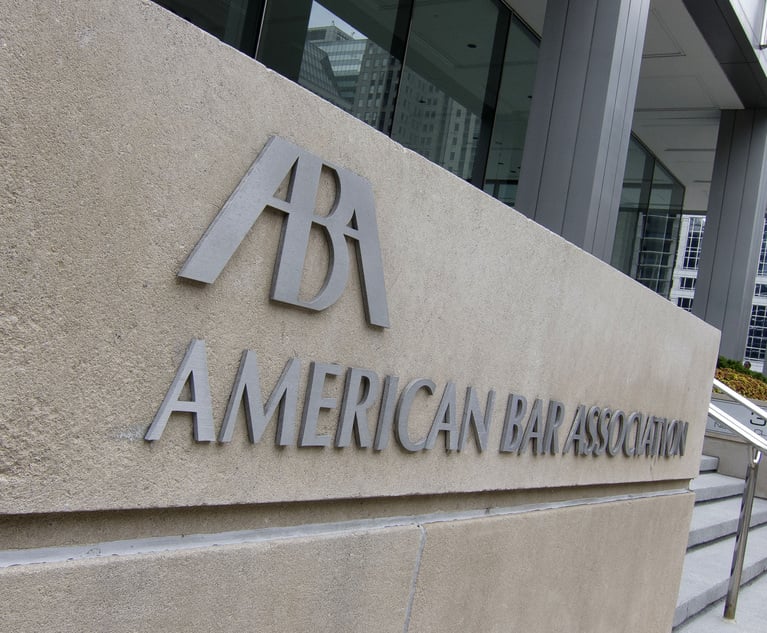The July bar exam is a go.
The National Conference of Bar Examiners announced May 5 that it intends to provide a July test to jurisdictions that choose to stick with the tradition exam timeline—a decision that had been up in the air due to the coronavirus. The conference also left the door open to change course should the COVID-19 pandemic warrant it.
Nineteen jurisdictions so far have announced plans to push the test back to September, while the remaining jurisdictions have either said they intend to give the test as scheduled in July or have yet to make any announcement about their exam plans.
“Based on this information, [the national conference] has determined that there will most likely be a sufficient number of July examinees to administer the bar exam,” reads the announcement, which stated that the conference will make the three components of its exam available to the jurisdictions that wish to give the test in July.
Administering the exam in July means the national conference, which develops the test, will need to prepare three separate bar exams within the span of two months. It announced in early April that it would offer additional tests Sept. 9 and 10 and Sept. 30 and Oct. 1 for jurisdictions that opt to postpone. But the conference said in late March that it would gauge whether there was enough interest from jurisdictions to offer a July exam, and whether it would be safe and feasible to do so.
Courts and bar administrators have been struggling with how to handle the all-important licensing exam and attorney admissions since the start of the COVID-19 shutdown. Law students and some legal educators have advocated for emergency diploma privileges that would allow new law graduates to skip the exam altogether. Utah is the only state thus far to go that route, and the national conference has warned that skipping the bar exam will put the public at risk of unqualified lawyers.
A growing number of jurisdictions have extended supervised practice rules to enable new graduates to practice for a time under the watch of an experienced attorney until they can sit for the bar.
The pandemic also has renewed interest in an online bar exam. Massachusetts is the only jurisdiction that has committed to offering the exam online if the test can’t be safely administered in person in September. The California Supreme Court has also urged the State Bar of California to deliver its rescheduled September exam online, though no final decision has been made on how that test will be administered.
More than half of all jurisdictions have said they plan to hold the bar exam on the originally planned date—July 28 and 29—or have not yet announced alternative plans. Many of those jurisdictions are clustered in the Midwest, and the majority traditionally have relatively small numbers of bar examinees, which could make it easier to administer the test in a socially distanced manner.
But the majority of jurisdictions with high volumes of test takers, including California, New York and Illinois, have canceled the July exam and moved the test to September. Every jurisdiction in the Northeast, for example, had postponed. The first September date has proven to be more popular than the one at the end of the month, which only three jurisdictions have opted for so far. The national conference is tracking exam announcements on its website.
A handful of larger jurisdictions, including Florida and Ohio, had yet to announce their plans for the July test by May 5. And several jurisdictions, including Texas and Minnesota, have said they will administer the bar in July and again in September. (The deans of Florida’s law school have also requested two bar exam dates.) At least six jurisdictions have said they plan to hold the July bar but will also offer the exam on the first September date if needed. They include Maryland, Missouri and North Carolina.
Bar examiners are hinting that it won’t be business as usual during the July and September exams. New York has warned that it may not have enough seats to accommodate everyone who wished to take the exam Sept. 9 and 10, and graduates of the state’s 15 law schools who are taking the test for the first time will receive priority registration.
That plan has rankled deans from schools outside New York, who have written to court administrators with suggestions on how to boost capacity for the exam to ensure their students don’t get left out. (New York Court of Appeals Chief Judge Janet DiFiore quickly responded with her own letter, assuring the deans that the court wants to accommodate as many test takers as it can in a safe manner.)
On Monday, the District of Columbia Court of Appeals also warned that seats for its rescheduled exam Sept. 9 and 10 will be limited due to social distancing protocols. It’s giving priority to first-time bar takers who graduated from American Bar Association-accredited law schools in 2019 and 2020. Remaining seats will be given on a first come, first served basis “if seats remain,” according to the court’s Monday order. Examinees will have to wear a face mask and may be subject to temperature checks before entering the testing venue, according to the order.
The Texas Board of Bar Examiners has told examinees that it will need to implement social distancing and “other safety requirements” for the test and that seats are limited. Seats for the July exam will be allocated based on the date they registered. Any takers who can’t be accommodated in July will automatically be registered for the September exam.
The National Conference of Bar Examiners also said Tuesday that it is still examining alternative delivery options for the exam, though it has previously warned that moving the test online presents numerous challenges, including ensuring test security.
“We also continue to study and formulate options for an emergency remote assessment for those jurisdictions that cannot administer an in-person bar exam due to COVID-19 restrictions,” reads the announcement. “We will continue to work closely with jurisdictions in the weeks ahead to help ensure that law graduates have the answers they need as they prepare for licensure.”
NOT FOR REPRINT
© 2024 ALM Global, LLC, All Rights Reserved. Request academic re-use from www.copyright.com. All other uses, submit a request to [email protected]. For more information visit Asset & Logo Licensing.

 Photo: Shutterstock.
Photo: Shutterstock.








